After 1975
Interview with Father Le Ngoc Thanh: Faith can change the world.
Published on
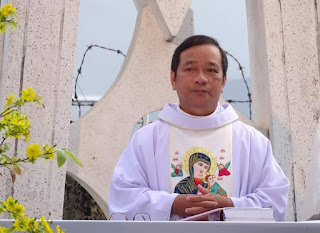
Editor’s Note: This is part of a series of interviews on the consistent policy of religious repression by the Vietnamese Communist regime. The interview was conducted in Vietnamese and has been translated by our staff.
Tuesday, June 6, 2023.
Interview on the topic: “The Repression of Religion by the Communist State of Vietnam Throughout the Years”
The interview was conducted with Father Antoine Lê Ngọc Thanh, who served as the Director of Communications for the Savior of the World Order in Saigon from 2009 to 2015. He was a former member of the Vietnam Interreligious Council and is currently serving in the Diocese of Long Xuyen, belonging to the Savior of the World Order in Vietnam.
*Father, compared to other religions such as Buddhism, Protestantism, and Caodaism, how is the situation of Catholicism in terms of control? Is it more lenient or stricter?
Father Antoine Lê Ngọc Thanh:
Compared to other religions, such as Buddhism, we can see that the main hindrance is for Buddhist groups that do not follow the Vietnam Buddhist Sangha (GHPGVN). Those who follow GHPGVN are not oppressed, they are even supported and provided with many favorable conditions. Businesses are even allowed to build temples and hand them over to the Vietnam Buddhist Sangha to carry out their religious activities.
As for Catholicism, recently the persecution has not been as intense as in the period after April 1975 when Catholicism faced personnel difficulties, challenges in establishing places of worship, printing religious materials, and maintaining economic foundations to support religious practitioners. During that period, we can say that the Catholic Church was practically left with nothing. Priests associated with the mission before April 1975 and those who were outspoken and uncontrollable by the government were all arrested and sent for “reeducation.” The term “reeducation” is used because there were no official charges or court trials.
After 1990, the religious atmosphere became relatively better because Vietnam began to open up and establish diplomatic relations with the international community. Since then, instances of persecution became more individualized and no longer part of large-scale campaigns like during the period from 1975 to 1990. These acts of persecution often concentrated in remote and distant areas.
Returning to the comparison among religions, in reality, only the Vietnam Buddhist Sangha (PGVN) enjoys freedom, while other religions such as Cao Dai, Protestantism, and Hoa Hao, including the so-called “state-owned” organizations, still face unfair treatment and encounter difficulties. The reason why even though they have been “state-owned,” the government still fears them is that religions have influence over the people, especially Hoa Hao Buddhism, which is strictly monitored. The organizational structure of Hoa Hao Buddhism bears similarities to Catholicism, with a hierarchical system from central to local levels. It must be said that compared to our Buddhist Hoa Hao brothers and other religions, although Catholicism also experiences pain and distress, it is relatively less severe.
*Father, why is it like that? Is it because Catholicism has the Vatican behind it or because priests rarely speak out strongly like in Cao Dai or Hoa Hao?
Father Antoine Lê Ngọc Thanh: It is not because of the Vatican, and it is not because the priests do not speak out. The main reason is the organizational system of Catholicism, which is connected to dioceses worldwide, including within Vietnam. This connection makes it challenging for the government, despite its efforts after 1975, to eliminate each Catholic group. On the contrary, it strengthens the solidarity among Catholics, creating a sense of unity in their faith, making them both active and cautious at the same time. As for Vietnam’s diplomatic relations with the Vatican, you know about it. They show interest when needed and disregard it when they deem it unnecessary because, for them, the existence of the new regime is what matters.
*In your opinion, does the voice of the Vatican have any influence on the policies of the Vietnamese government?
Father Antoine Lê Ngọc Thanh: In the past, the voice of the Vatican seemed very strong. However, since the mid-1990s, it has significantly decreased because Vatican and the Vietnamese government reached agreements that made it easier for both sides to work on the appointment of bishops. With such agreements, there are things that Vatican says and the Vietnamese government listens to, and there are things that they do not listen to because they consider them as their internal affairs.
*Buddhism, Protestantism, and Cao Dai all have a “state-sponsored religion” system alongside their independent religious systems. Does Catholicism have a similar phenomenon, Father?
Father Antoine Lê Ngọc Thanh: Catholicism does not have such a “state-sponsored religion” system, although the government had the intention to establish the Patriotic Catholic Solidarity Committee, later renamed as the Catholic Solidarity Committee. They also wanted to imitate the Chinese model, where there would be a Church completely independent from Vatican or with a symbolic relationship without direct control. However, Vietnamese bishops, priests, and faithful did not agree, so the committee still exists but in a state of limbo. It cannot be disbanded, yet it does not function or have any impact on the Church.
*Father, can you tell us about some specific and most severe cases of repression by the communist government against Catholicism since April 30, 1975, until now?
Father Antoine Lê Ngọc Thanh: I don’t have the time to mention everything. I will only talk about matters related to the Savior of the World Order. After April 30, 1975, hundreds of priests were imprisoned, and dozens of priests were killed for the sake of God. In particular, within the Savior of the World Order, nearly 20 priests who made public declarations were sent for re-education. In Saigon alone, including the Trinitarian Fathers, 39 priests who made public declarations were sent for re-education, and most of them left the Order afterwards. There were those who died in prison, such as Father John Baptist Nguyễn Văn Vàng (1917-1986). On June 3, it marked 37 years since his death in prison due to torture in communist prisons, specifically in Camp A-20, Xuân Phước.
Regarding poisoning incidents, according to Father Thaddeus (Tađêô) Nguyễn Văn Lý, a former prisoner of conscience who served multiple long sentences in prison, Archbishop Philippe Nguyễn Kim Điền, the former Archbishop of the Archdiocese of Huế, was poisoned and died on June 8, 1988, at Chợ Rẫy Hospital in Saigon. Father Thaddeus (Tađêô) Nguyễn Văn Lý was once the secretary of Archbishop Philippe Nguyễn Kim Điền and can be considered his direct disciple.
All major facilities of the Savior of the World Order in the South, such as in Đà Lạt, including the 28-hectare monastery, were completely confiscated and are currently being used as the Central Highlands Biology Institute. Below that, there was a chicken farm called Scala, which used to supply breeds to the entire Southeast Asian region before 1975, but it was taken away from us after 1975.
In Nha Trang, the Hai Yen Hotel on Tran Phu Street used to be the monastery of the Savior Congregation in Nha Trang. In Saigon, the Thuduc General Hospital occupies 25-27 hectares and used to be a monastery of the Savior Congregation. The Gia Xuc food factory in Cat Lai, Thuduc was confiscated. Right at Ky Dong, the Cuu The School is now Ky Dong School, and next to it, the Marana-tha Center is now a kindergarten. Also, right next to the Ky Dong-Nguyen Thong monastery, there was a small cemetery reserved for the Fathers and Teachers of the Congregation, but they were ordered to be relocated and now it has become a swimming pool. The Phung Su School in Chau O, Quang Ngai, and so on… These are just a few significant examples, and we haven’t even mentioned the properties in the North before 1975. Specifically for the Savior Congregation, all of our assets were essentially looted.
At that time, they even threatened to seize the Savior Congregation monastery at 38 Ky Dong. To carry out this plan, they secretly brought weapons to Ky Dong Church and hid them in a corner of the confession booth. Luckily, the Church discovered it and reported it to the local police station, which was then in Ward 17 and is now in Ward 9. The police station at that time was unaware of the plot, so they wrote a report and stored the weapons. After a few hours, the military surrounded the monastery, claiming it was a subversive location with weapons, but upon searching, they found nothing. This was a major plan, as they intended to seize both the monastery and the church. The extent of this plan is unknown to me, but it must have involved higher authorities since the district and ward levels were unaware. After that, they worked for a while and then things quieted down, as if it was all over.
If I hadn’t discovered it, it would have been considered weapon storage and deemed a subversive organization, just like the incident at the Congregation during Father Tien Loc’s time (may he rest in peace) in Thuduc. It was simply a case of a young disciple in the training phase finding a rusty shotgun shell on the side of the road. Father Tien Loc saw the disciples passing it around, so he told them to give it to him and he placed it on his desk as a paperweight. When the police and military came to seize the monastery in Thuduc without any justification, they saw the rusty firearm and considered it as evidence. They arrested Father Tien Loc for holding the firearm, taking photos as if he was in possession of a weapon. These were all fabricated setups. By any means, they wanted to eliminate all the foundations, influence, and power of Catholicism. However, human plans are not equal to God’s plans. God has ways to preserve the Congregation and overcome economic difficulties and persecution.
I only want to talk about the Savior Congregation, as for other places, I didn’t participate directly and didn’t have the opportunity to know the details, so I dare not speak about them. But I know that not only the Savior Congregation but also other Congregations like the Dominicans, the Redemptorists, etc., have faced similar situations.
*Do you personally have any experiences or personal encounters with oppression, control, or disabling?
Father Antoine Lê Ngọc Thanh: Personally, I only experienced a short period of control from around 2005 to 2008. During that time, I was responsible for the ethnic Gia Rai people in the Central Highlands region. My parish had 15,000 parishioners, but we only had one designated place for worship in Bin Ama Djong Village, Ayun Pa Town. The parishioners living more than 50 kilometers away couldn’t attend the services, especially the elderly and children. I had to visit each village to conduct the liturgy, and they would create records of my visits. But I didn’t stop there; the next time, I would go to a different village, and they would create another record. I kept on going because I saw it as my mission. As long as I was alive, I would continue doing it. They tried to expel me from the province because I was from Saigon and had moved to Gia Lai province for work, so I wasn’t originally from there. However, God intervened, and they couldn’t carry out their plan. One of the most dangerous incidents occurred during Christmas 2006 when I was riding my motorbike to a village in Krong Pa to celebrate Christmas Mass. The Deputy District Security Officer drove alongside me, raising his leg, threatening to kick me to death if I entered the village. But I continued on. Perhaps they saw that I was too stubborn, so they let me go. I can say that I have only had such experiences, not as many as my other fellow priests.
*Father, earlier you mentioned that indigenous ethnic communities in remote areas face more repression. The priests serving in these areas are also harassed, and some have even been killed, such as Father Tran Ngoc Thanh from the Dominican Order in Kon Tum, or seriously injured, like Father Tran Van Truyen in Gia Lai. Father, why is it like that?
Father Antoine Lê Ngọc Thanh: The state oppresses ethnic minority people because they want to control them. They don’t want ethnic minority people to follow religion because through religion, they cannot exercise control. When ethnic minority people want to preserve their culture, the state uses the media to label it as superstition or illegal activities that need to be eliminated. Ethnic minority people have been deprived of their cultural belongings, from their gongs to traditional clothing. When Catholicism appeared, it was the priests themselves who encouraged the ethnic minority people to wear their traditional attire, sing their traditional songs, repurchase their cultural belongings, and play their gongs again. The ethnic minority communities became vibrant and alive. It is precisely for this reason that the communist state wants to eliminate religion from these communities to exert control. You see, when people lose their roots, when they no longer have anything to hold onto, they can be easily swayed in any direction. You can even uproot a bonsai tree and move it elsewhere, and it will adapt.
*In addition to using violence to suppress, what measures has the Vietnamese government taken to exploit Catholicism, assimilate the religious practitioners, and create divisions between different religions? In your opinion, have these measures been successful?
Father Antoine Lê Ngọc Thanh: Regarding creating divisions between different religions, they do it regularly. For example, on the media and social networks, they sometimes manipulate sentences from a monk’s sermon to condemn Catholicism or vice versa. They also manipulate sermons and articles from certain pastors and priests to misinterpret the essence of the messages and incite religious division and conflict. They have considered this as a method to protect their regime, as they feel more secure when religious communities are divided.
Internally within Catholicism, since the mid-1990s, there has been an agreement between the Vatican and the Vietnamese government. According to this agreement, when the Vatican appoints a bishop, which is a high-ranking position in a diocese, it must be approved by the Vietnamese government. The Holy See meticulously goes through several stages of selection and presents a final list of three candidates to the Vietnamese government, which then chooses one of them. This practice has sown doubt and fear. The person who is chosen is afraid of how others perceive them, while others wonder why certain individuals were not chosen and whether the chosen person has “collaborated” with the Vietnamese government or is a puppet of the state, etc. Although within the Church, bishops, priests, and laypeople tell each other that it is a condition that they cannot overcome, and there is no evidence of someone “collaborating” or becoming a tool of the state, it clearly creates a significant division, making people easily skeptical. Just one word or unusual behavior is enough for people to pass judgment, even if it is not true. For example, the recent controversy in the Vinh diocese originated from such reasons.
*Returning to the controversy in the Vinh diocese, we also know that in Buddhism, there is a situation where the state “embeds” individuals into the ranks of Buddhism, and then uses money and power to attract, bribe, and assimilate certain monks, etc. How about Catholicism, Father?
Father Antoine Lê Ngọc Thanh: About five years ago during our weekly “Iced Coffee Discussion,” I presented this issue, and one of my observations at that time was that it is difficult to “embed” individuals into the ranks of Catholic clergy. While the training program is not easy for individuals, attaining that spiritual life requires an experience of being saved and loved by God. People almost have to accept themselves as zeros in order to be saved by God. Therefore, it is difficult for someone to achieve this through “embedding.” However, after I finished speaking, a Bishop who watched the program later met with one of my superiors and said that it is possible to “embed” people into Catholicism. Clearly, any system or organization, no matter how meticulous, will have individuals seeking ways to exploit any vulnerabilities.
*Father, could you provide a comparison of the religious policies of the former Republic of Vietnam (VNCH) and the current communist regime in Vietnam? If there are differences, what are the reasons behind them?
Father Antoine Lê Ngọc Thanh: Actually, before 1975, I was too young to be a precise witness. I only heard stories from various people and read books. However, in general, it can be seen that before 1975, Catholicism had many large and well-established institutions that could contribute to society in terms of education, healthcare, and moral activities of both the community and the religion. But after 1975, those institutions were seized and used by the state. Even with this limited information, we can see that before 1975, the religious policy of the Republic of Vietnam (VNCH) did not consider religion as an enemy but rather as a factor contributing to the construction of a community and society. Religion truly made significant contributions to society, and nearly 90% of intellectuals in the South under the VNCH regime belonged to a religious group, whether it was Buddhism, Catholicism, Protestantism, Cao Dai, Hoa Hao, etc. In contrast, the communist regime views religion as a force and naturally positions itself in opposition. They eliminate the potential contributions of religions to social development. Perhaps one of the reasons why Vietnam has been slow to develop is because the intellectual groups within religious communities have not been able to contribute fully to social activities.
The charitable activities are also restricted, and they have to go through the Fatherland Front, which is an organization that doesn’t want us to do anything but only wants to manage us.
*Father, it is known that the Order of the Incarnate Word has been involved in activities to help disabled veterans of the former Republic of Vietnam (VNCH) for many years, and it seems that these activities have also been hindered and disrupted by the government?
Father Antoine Lê Ngọc Thanh: We started these activities in Ky Dong in 2012. The Vietnamese government sees it as a challenge from us to them, but in reality, we don’t have such intentions. We simply want to do something that is our duty as fellow citizens to another fellow citizen. Because all the disabled VNCH veterans are people who were born during that historical period of the country, and they must fulfill their citizenship responsibilities. Ideally, after the war, the government should take care of them, but they were marginalized and subjected to various forms of discrimination, making their living conditions worse. When we try to do something for them, we see it as our duty, not as charity or a good deed. However, it is always explained wrongly. Fundamentally, this government wants to erase the traces of its own mistakes and when we do such things, it reminds society of their wrong policies. As a result, they become resentful towards us, and we become victims because of it.
*Father, how many thousands of disabled VNCH veterans were there at the beginning of your work, and how many are there now?
Father Antoine Lê Ngọc Thanh: Regarding the exact number, we don’t have it, but many groups in 2012 estimated that there were around 15,000 living veterans. However, in 2012, we initially received 250 people from Lien Tri Pagoda. Lien Tri Pagoda had been doing this work before, but they faced difficulties and attacks from the local authorities and couldn’t continue, so they asked us to take over. In 2013, the number doubled to 500, and in 2014, it reached 1,000. The highest number was in 2019 when we directly cared for over 7,000 individuals. By 2023, it was around 6,000. The number of deceased individuals on our list from 2012 to the end of 2022 was 2,474. So, we have never actually reached the figure of 15,000 as mentioned in some reports. I think at this time, there are still around 10,000 living disabled VNCH veterans.
*All the oppression and disruption caused by the Vietnamese government to Catholicism, what consequences have they had on the development of Catholicism in Vietnam, Father?
Father Antoine Lê Ngọc Thanh: It has had very serious consequences. Firstly, it has created a great deal of skepticism and filtering in the acceptance of faith. People do not accept faith in its true essence but rather based on factors such as having a family with a religious background or marrying someone of a certain faith. This situation is very common. Secondly, within the Catholic community, there has been a noticeable decrease in listening to and respecting each other’s positions, which has resulted in a decrease in the effectiveness of our work.
*Father, why has faith decreased?
Father Antoine Lê Ngọc Thanh: For example, the recent incident in the Vinh diocese (regarding Father H.H.H.) has raised questions about the seriousness of the training process. Are we still being guided by those truly chosen by God to lead us in the right path of truth, or is it just a temporary arrangement? Of course, in general principle, people say that such incidents are temporary, but it is evident that they have an impact.
After being listed twice, in 2005 and 2006, as a Country of Particular Concern (CPC) for religious freedom, on December 2, 2022, the U.S. Department of State placed Vietnam on the Special Watch List, and some argue that with the serious violations in recent times, the United States should have reinstated Vietnam on the CPC list and imposed stricter sanctions. However, it seems that the leniency and flexibility of the U.S. government and Western democratic countries regarding human rights issues in Vietnam have not led to an improvement in the situation of religious oppression. According to you, Father, what should genuine priests and all those concerned about religious freedom in Vietnam do to promote religious freedom and protect religions from disruption and assimilation?
Father Antoine Lê Ngọc Thanh: In reality, Western countries, especially the United States, at this moment, with the challenge of the China mainland, are practically allowing the Vietnamese Communist Party to do whatever they want. On the other hand, Western countries and the United States want to turn Vietnam into an ally, so they hardly consider human rights conditions and religious freedom as important anymore. Although the U.S. Department of State still releases an annual report on this issue as part of the procedure, it is not really significant. I noticed this issue as early as 2012, not just recently. When I had the opportunity to visit the United States, I raised this issue even at the office of the U.S. Department of State, but there has been hardly any change until now. It is because the United States wants to upgrade its diplomatic relations with Vietnam to a strategic level, and one of the conditions they agreed upon with Vietnam is that they will not take any action to intervene and change the regime. Usually, when upgrading to a strategic level, agreements should have a value of at least 50 years, not just 5 or 10 years. Therefore, expecting the United States and the West to intervene in human rights or religious freedom is like trying to imitate someone a little bit to get along with them, but expecting them to be the main axis is unrealistic. It is placing too much expectation on others while they are not willing to bear that burden.
*Father, when we can’t expect anything from the outside and there is no hope for change from the authoritarian Communist government of Vietnam, what should we do?
Father Antoine Lê Ngọc Thanh: We must internalize the content of faith. Throughout history, the content of faith itself has transformed the world, starting from the twelve apostles over 2,000 years ago. So now, more than ever, we need to emphasize the training for the maturation of faith. When individuals mature in their faith, they can change the world through their faith, without relying on external tools. In Buddhism, it is said to rely on inner strength rather than external forces.
*Sincere thanks to you, Father.
Song Chi (Interviewer)
Click here for the original article.
You may like
-
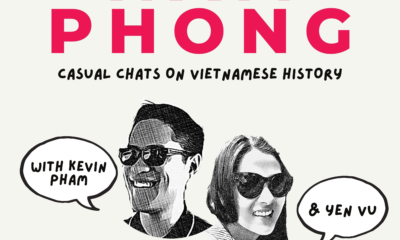

Nam Phong Dialogues: Episode 20 – Democracy and Communism
-
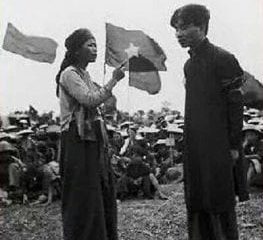

A History of Legal Thought in Vietnam, 1945–1956 – Part 5: Ho Chi Minh’s Legal Thought after the Debate of 1948
-
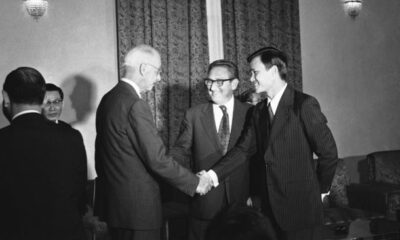

Striving for a Lasting Peace The Paris Accords and Aftermath
-
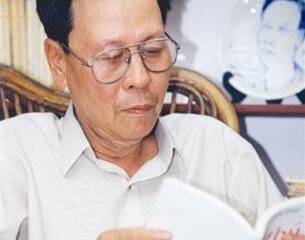

In search of what I’ve lost: Essays by Nguyễn Khải (Part 2)
-
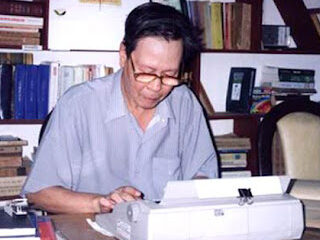

In search of what I’ve lost: Essays by Nguyễn Khải
-
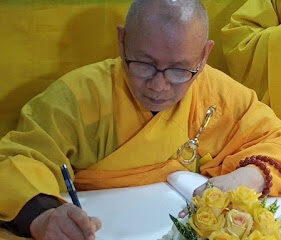

Interview with Venerable Thich Khong Tanh: The tactics of the Vietnamese authorities on religion are: repression, division, isolation, and enticement

Translation: The Decision in 2013 of the Central Committee of the Communist Party of China on Certain Major Issues Concerning Comprehensively Deepening Reform

Thủ Đức Demonstration High School: A Modern Educational Policy and Teaching Method of the Republic of Vietnam

Southeast Asia falls into China’s Trans-Asian Railway Network

A Proposed Outline for a Study on Republicanism in Modern Vietnamese History

Tran Le Xuan – Diplomatic Letters

Vietnam’s unresolved leadership question

Rethinking History and News Media in South Vietnam

Pandemics and Morality: Lessons from Hanoi

Democracy in action: The 1970 Senatorial elections in the Republic of Vietnam (Part 1)

“The Vietnam War Was an Unwinnable War”: On Factuality and Orthodoxy
US-VIETNAM REVIEW
-

 Politics & Economy4 years ago
Politics & Economy4 years agoVietnam’s unresolved leadership question
-
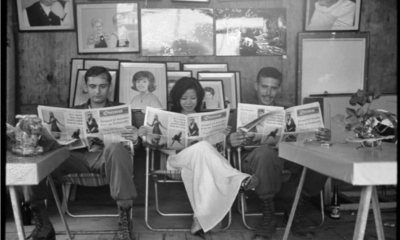
 Politics & Economy1 year ago
Politics & Economy1 year agoRethinking History and News Media in South Vietnam
-

 Society & Culture5 years ago
Society & Culture5 years agoPandemics and Morality: Lessons from Hanoi
-

 ARCHIVES5 years ago
ARCHIVES5 years agoDemocracy in action: The 1970 Senatorial elections in the Republic of Vietnam (Part 1)
-
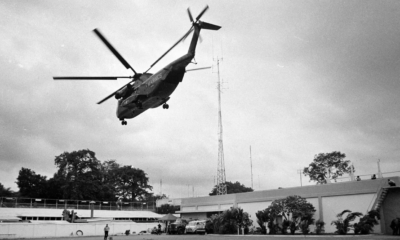
 After 19751 year ago
After 19751 year ago“The Vietnam War Was an Unwinnable War”: On Factuality and Orthodoxy
-

 Politics & Economy4 years ago
Politics & Economy4 years agoThe Limit to U.S.-Vietnam Security Cooperation
-

 Politics & Economy5 years ago
Politics & Economy5 years agoNational Shame: How We (Americans) can learn from Nguyễn An Ninh
-
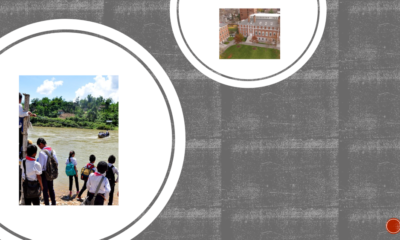
 Politics & Economy4 years ago
Politics & Economy4 years agoUS-Vietnam Partnership must Prioritize Vietnamese Education

